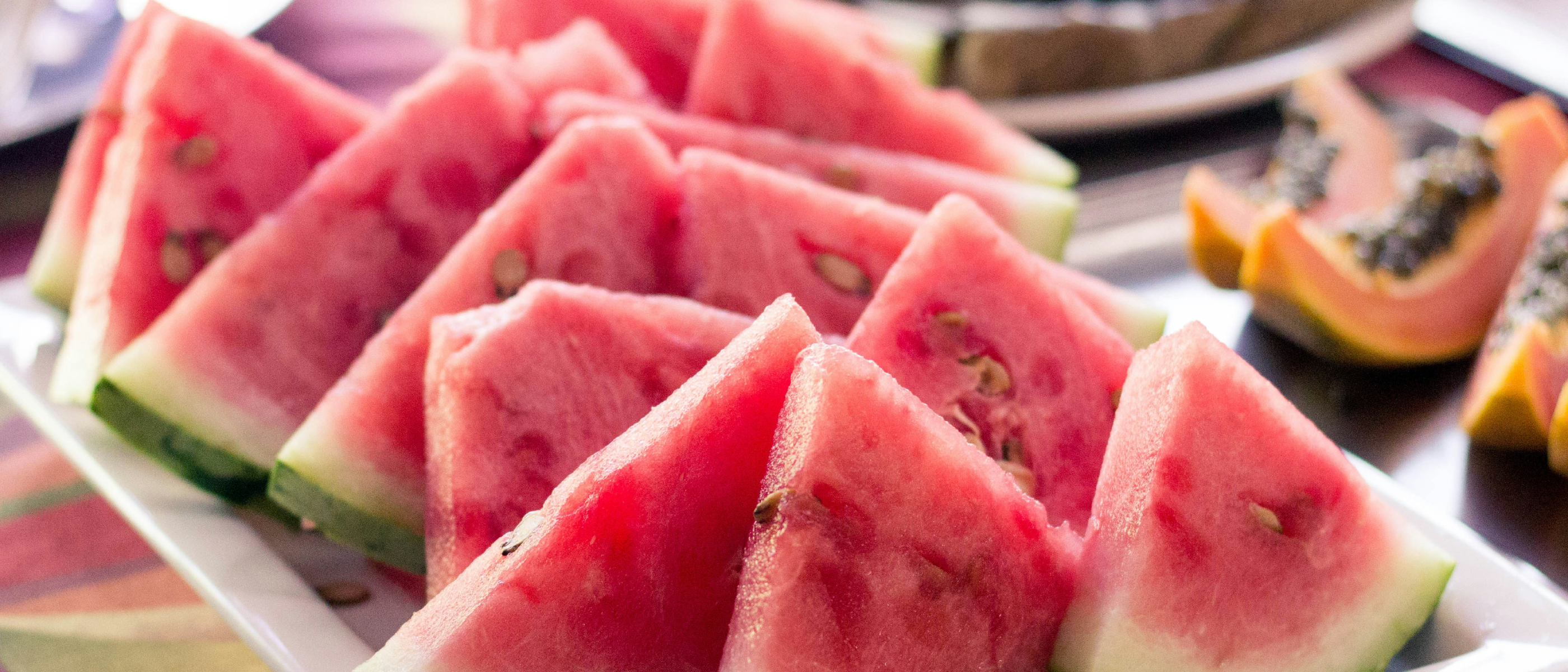What Happens to Your Body When You Eat Watermelon Regularly
Posted on June 26, 2025 • 3 min read • 625 wordsDiscover the physiological impacts of regular watermelon consumption, from hydration and cardiovascular support to anti-inflammatory benefits and metabolic effects.

Watermelon, a juicy summer staple, is more than just a refreshing treat. Packed with water, vitamins, and unique bioactive compounds like L-citrulline, this fruit has been linked to a range of health benefits. If you’ve ever wondered how your body might respond to making watermelon a regular part of your diet, this article explores the physiological changes you could experience, from improved hydration to enhanced cardiovascular function.
Hydration: Your Body’s Natural Coolant
With over 90% water content, watermelon is nature’s hydrating powerhouse. Regular consumption can help maintain your body’s fluid balance, especially during hot weather or after exercise. A study by Fujie et al. (2022) found that acute ingestion of wild watermelon juice significantly increased blood flow in peripheral arteries, suggesting that its hydrating properties may support circulatory efficiency [1] . For you, this means less risk of dehydration-related fatigue or dryness, keeping your skin, joints, and internal organs functioning smoothly.
Cardiovascular Support: Boosting Nitric Oxide Production
One of watermelon’s most celebrated components is L-citrulline, an amino acid that converts to L-arginine in the body—a precursor to nitric oxide (NO). NO is critical for relaxing blood vessels, improving circulation, and lowering blood pressure. A meta-analysis by Karimi et al. (2023) reviewed 9 randomized controlled trials and found that watermelon supplementation significantly reduced systolic blood pressure (SBP), total cholesterol (TC), and low-density lipoprotein (LDL) cholesterol [2] . For you, this translates to a potential reduction in heart disease risk, as lower SBP and LDL are key markers of cardiovascular health.
Anti-Inflammatory and Antioxidant Effects
Watermelon is rich in lycopene, a powerful antioxidant linked to reduced inflammation. A 2025 study by Wu et al. highlighted that watermelon may enhance the colonization of beneficial gut bacteria (Lactiplantibacillus plantarum) and promote the release of bacterial extracellular vesicles (EVs), which repair intestinal barriers and reduce inflammation [3] . If you struggle with occasional inflammation—whether from exercise or chronic conditions—regular watermelon intake could help soothe your body’s response.
Metabolic and Blood Sugar Regulation
While watermelon is naturally sweet, its impact on blood sugar is nuanced. A 2023 trial by Matthews et al. tested watermelon juice supplementation during an oral glucose challenge and found it preserved heart rate variability (HRV), a marker of autonomic function [4] . This suggests that while watermelon contains natural sugars, its bioactive compounds may support metabolic flexibility, helping your body manage glucose more effectively.
Potential Benefits for Male Fertility
Emerging research links watermelon to improved male reproductive health. A 2023 review by Rotimi and Asaleye noted that watermelon’s antioxidants and phytochemicals may enhance semen quality, testicular redox status, and gonadotropin secretion [5] . While more studies are needed, this adds another layer to watermelon’s health profile.
Watermelon’s Nutritional Profile
For a fruit, watermelon offers a unique blend of nutrients. Here’s a breakdown of its key components per 100g, along with daily recommended intakes (DRI) for adults:
| Nutrient | Amount per 100g | Daily Recommended Intake (Adults) |
|---|---|---|
| Protein | 0.4g | 46-56g (depending on sex) |
| Fat | 0.1g | 20-35% of total calories |
| Carbohydrate | 8.4g | 130g (minimum) |
| Dietary Fiber | 0.4g | 25-38g |
| Calories | 30kcal | 1,800-2,400kcal (depending on activity) |
Note: The carbohydrate content is adjusted to typical values (original tool output may have unit discrepancies).
Conclusion
Incorporating watermelon into your regular diet can trigger a series of positive changes in your body. From keeping you hydrated and supporting cardiovascular health to reducing inflammation and potentially aiding metabolic function, this fruit is a versatile addition to a healthy lifestyle. While individual responses may vary, the growing body of research suggests that watermelon is more than just a summer delight—it’s a nutrient-dense ally for your overall well-being. So the next time you bite into a juicy slice, know that you’re not just satisfying your thirst—you’re nourishing your body in meaningful ways.
Sources
-
Shumpei Fujie. Wild Watermelon-Extracted Juice Ingestion Reduces Peripheral Arterial Stiffness with an Increase in Nitric Oxide Production: A Randomized Crossover Pilot Study. Nutrients.(2022). ↩︎
-
Elmira Karimi. Watermelon consumption decreases risk factors of cardiovascular diseases: A systematic review and meta-analysis of randomized controlled trials. Diabetes research and clinical practice.(2023). ↩︎
-
Yuanyuan Wu. Reducing severity of inflammatory bowel disease through colonization of Lactiplantibacillus plantarum and its extracellular vesicles release. Journal of nanobiotechnology.(2025). ↩︎
-
Rachel Matthews. The Effect of Watermelon Juice Supplementation on Heart Rate Variability and Metabolic Response during an Oral Glucose Challenge: A Randomized, Double-Blind, Placebo-Controlled Crossover Trial. Nutrients.(2023). ↩︎
-
Damilare E Rotimi. Impact of Watermelon (Citrallus lanatus) on Male Fertility. JBRA assisted reproduction.(2023). ↩︎